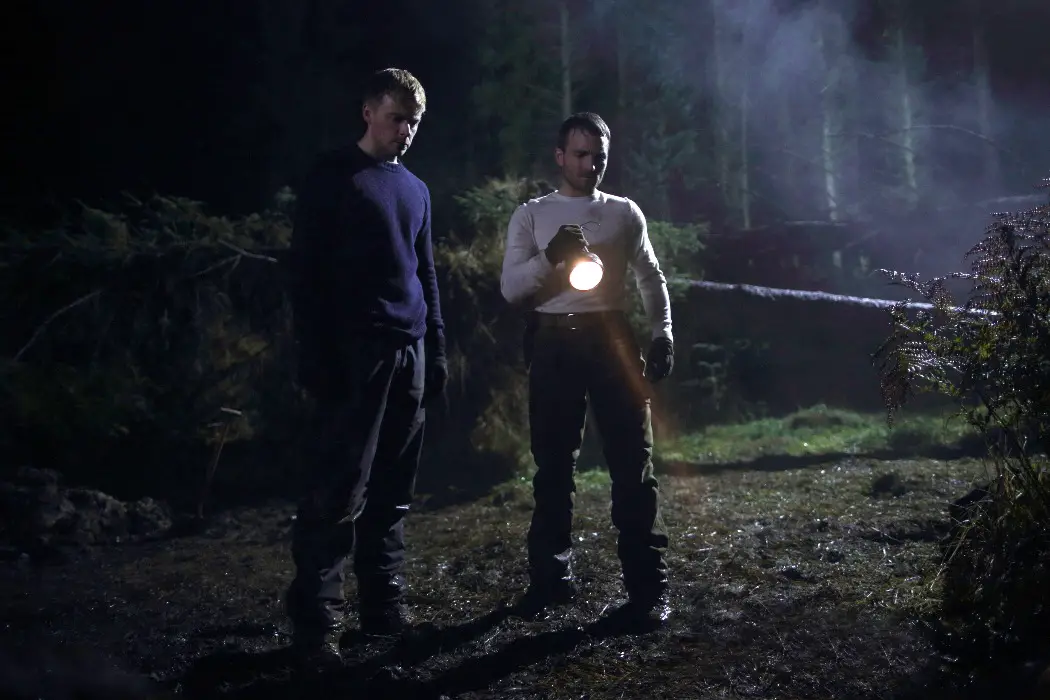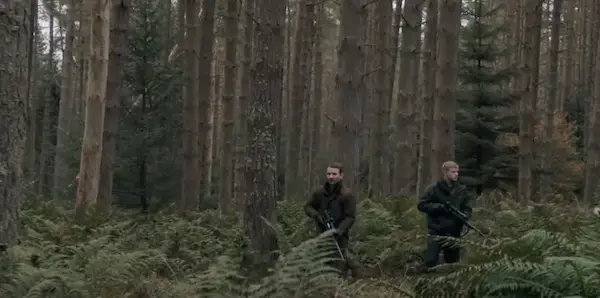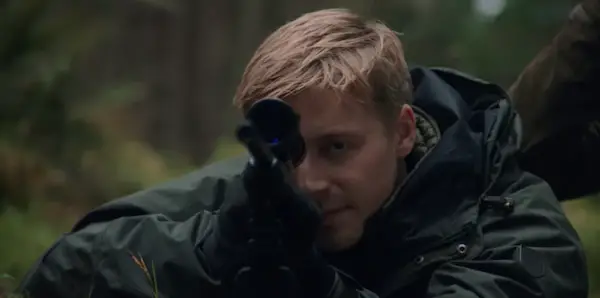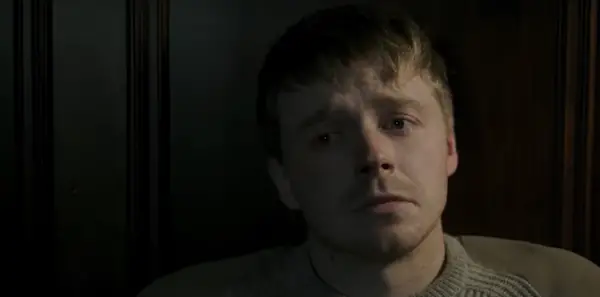CALIBRE: A Quiet, Absorbing Thriller

Kyle is a film geek and a film major graduate…
What do you do when you’ve made a terrible, irreversible mistake? That’s the very basic, well-trodden concept that Calibre takes on. Childhood friends Marcus (Martin McCann) and Vaughn (Jack Lowden, of Dunkirk fame) travel to the Scottish Highlands to go hunting, but soon need to find an unsuspicious way out after a horrible accident leaves someone dead.
An Eerie Atmosphere
While its premise is nothing new, Calibre’s approach to it is rather refreshing. During Marcus and Vaughn’s drive out, the film utilizes extreme long shots, shots allowed to hold for an uncomfortably long amount of time, to set an eerie tone and establish the distance between home and the Highlands. And with sound design that seems to almost suppress noise beyond dialogue, even in the miles of forest, the film sets a suffocating atmosphere around its characters.

But the atmosphere is not only defined by the film’s composition of setting. Writer-director Matt Palmer orients us around the main characters’ concern and fear of the town’s people. Toward the beginning of the film, there’s a strange introduction between one of the most prominent townspeople, Logan McClay (Tony Curran), and the two friends. Logan introduces himself and is immediately aware of who Marcus and Vaughn are and what they’re here for.
As the film plays on, it seems as though the whole town not only knows each other closely, but is also deeply aware of the presence of Marcus and Vaughn. Palmer often shoots the townspeople in close-up, their stone-faced expressions creating deep unease, as well as in POV long-shots, where they’re seen glancing over at Marcus and Vaughn, seemingly speaking about them. Couple this composition with the accidental death that they must hide, and the possibility of them getting caught only getting worse as the hours go on, and the atmospheric tension becomes almost unbearable.
Focusing On Morality
The tension in Calibre wouldn’t have worked had it simply been about whether or not the townspeople would find out what Marcus and Vaughn have done.
At first, that’s the case, and it works because so much happens so quickly that neither the characters nor the audience have time to fully digest what’s happened. We’re essentially stuck in a “these are our protagonists and they must figure this out” mode for the first act.

But slowly, and then suddenly, the film dives into the morality of what’s going on and, very simply, asks us to break out of that mode. And the conflict that sprouts between Marcus and Vaughn is, in its most explicit moments, gripping. Martin McCann, who looks like he could be the brother of Michael Fassbender (and performs a bit like Fassbender as well), does well in conveying a desperation to cover up the death, as his character suggests it was an accident and that they don’t deserve to go down for an accident. But Jack Lowden expertly embodies apathy toward actually righting wrongs, despite his character’s awareness of how wrong it is what they’ve done.
An Outstanding Final Act
Once things take a turn for the worst for Marcus and Vaughn, Calibre really kicks off and capitalizes on the fascinating potential of the moral conflict. No longer are we asking about what is right and wrong. Rather, we start asking what should happen next.
A scene between the townspeople and Vaughn echoes the famous ending of Fritz Lang’s M, not necessarily in specifics of the story, but in an intense, underground debate about justice — what criminals deserve and what victims deserve.
The outcome of the debate, though, is significantly different than Lang‘s film, and leads to a startling, jarring, shocking ending — an ending that works. Vaughn has to take extreme action in consequence to his mistakes, and Lowden gives all of himself over to the emotionally crushing moment.

And Matt Palmer remains in firm control of his film’s themes through the final second, ending on a shot of bracing, powerful judgment.
Calibre: Conclusion
Calibre is a confident thriller that constructs tension effortlessly. While the first two acts are, more or less, standard yet entertaining fare in the genre, they also do subtle work so that the film can end as it does. And the ending, which breaks free of the formulaic mold to investigate and emphasize the fallout of these character’s actions, lends the film a weight that elevates it within the genre.
What did you think of Calibre? Were you as surprised by the ending? Did you like where the film went in terms of its questions of justice? Share your thoughts in the comments below.
Calibre was released on Netflix in both the U.S. and the U.K. on June 29, 2018. For all international release dates, see here.
Does content like this matter to you?
Become a Member and support film journalism. Unlock access to all of Film Inquiry`s great articles. Join a community of like-minded readers who are passionate about cinema - get access to our private members Network, give back to independent filmmakers, and more.
Kyle is a film geek and a film major graduate from UC Berkeley. Aside from obsessively monitoring the awards season or watching a Christopher Nolan film for the twentieth time, he loves screenwriting and the Los Angeles Dodgers.












